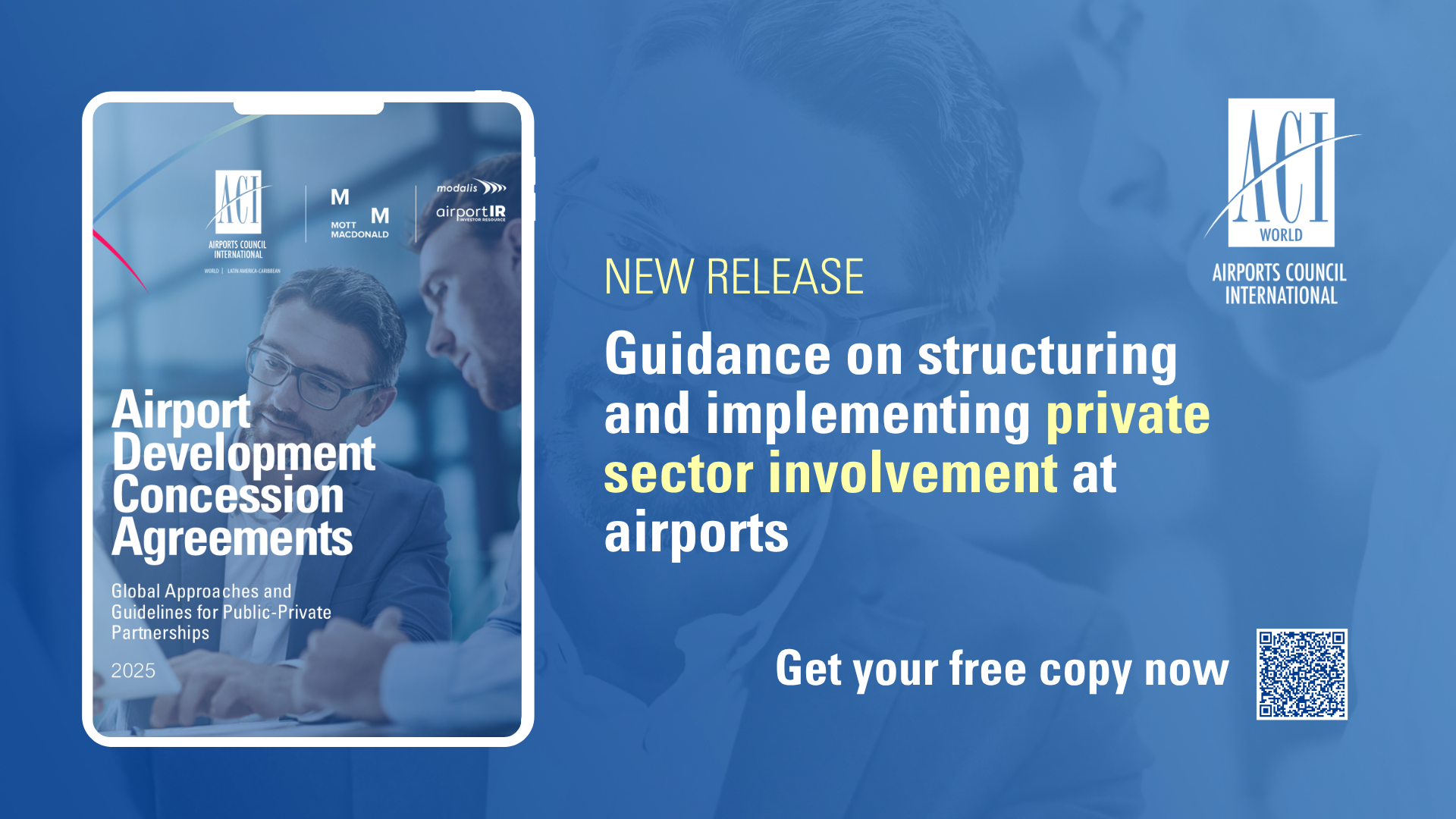Source: ACI-LAC
- ACI World and ACI Latin America and the Caribbean chart a clear path for successful private-sector involvement at airports
Amid record air travel growth, Airports Council International (ACI) World and ACI Latin America and the Caribbean (ACI-LAC) today released Airport Development Concessions Agreements: Global Approaches and Guidelines for Public-Private Partnerships (PPPs). The resource provides clear, practical guidance on structuring and implementing private-sector involvement at airports for concessionaires, investors, lenders, advisors, governments, and grantors.
Today, more than 850 airports in over 90 countries involve private-sector participation, and investment continues to expand, with 132 transactions at various stages in the global pipeline as of January 2025. Increasingly, concessioning of airport assets has become a widely used model to finance long-term infrastructure and deliver major operational improvements across most regions—underscoring the need for clear, globally informed guidance.
“These guidelines are built on decades of experience across our region and beyond. They offer governments and investors a clear, practical framework to structure airport partnerships that are transparent, resilient, and focused on long-term value for passengers, communities, and economies” said ACI Latin America and the Caribbean Director General Dr. Rafael Echevarne.
What the guidelines cover
- State of the airport development concessions industry
- Comprehensive guidelines for preparing, negotiating, and managing airport development concession agreements — from feasibility to execution
- Risk identification and allocation frameworks for financial, operational, and demand risks
- Model clauses and templates for transparent, balanced partnerships
- Best practices in governance, performance monitoring, and dispute resolution
- Global case studies showcasing airport development concession models and lessons learned
- Guidance on sustainability and community value in airport development
- Strengthens financial resilience through smarter partnerships
- Enhances transparency and long-term stakeholder alignment
- Reduces risk while driving sustainable growth

